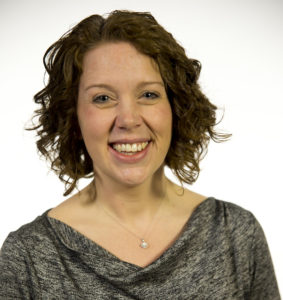By Kara Sherrer
A Master of Accountancy degree, a 10-week paid internship with the Big 4, and the CPA exam — the Vanderbilt MAcc program packs a lot of value into 12 months. We talked with Lindsay Donald, Program Director for the Masters of Accountancy, to answer current and prospective students’ questions about the program timeline.
What exactly is the Mod system?
Rather than using fall and spring semesters, Vanderbilt Business separates the academic year into four quarters, known as Mods. Each Mod involves seven weeks of classes, followed by a week of exams (for a total of eight weeks). There is a break in between each Mod of at least a week to allow for immersion experiences, holidays, and other events.
When does the program start?
Both Masters of Accountancy tracks officially start at the beginning of August. However, the program informally kicks off at Welcome Weekend in early April, when students are introduced to representatives from the Big 4 firms (Deloitte, EY, KPMG, PwC). They continue the networking through the summer with personal visits to Big 4 offices, so students already have relationships in place when they begin classes in the fall.
Why does the program last beyond graduation?
MAcc candidates graduate the second Friday in May, alongside every other Vanderbilt program. However, they stay in Nashville, and begin studying for the Certified Public Accountant (CPA exam), which takes place the week after graduation. Students continue to study and sit for various sections of the exam throughout the summer, wrapping up before they start their full-time jobs in September.
Why is taking the CPA exam before starting a full-time job important?

MAcc Program Director Lindsay Donald
While many entry-level accountants do have some sort of master degree, few have already passed the Certified Public Accountant (CPA) exam before starting work full-time. Taking the exam before starting work means students can focus on their job instead of dividing their attention between on-boarding and test prep. As an extra incentive, all four partner firms offer a $5,000 bonus if new employees pass the CPA exam either before they start or within their first year on the job.
Vanderbilt Business has one of the highest average CPA pass rates among top Master of Accountancy programs. On average, 90% of Vanderbilt MAcc graduates pass the CPA exam on their first try, compared to about 50% nationally.
“Students are already in study mode. They’re not having to work a full-time job and then go home at night and weekend and study for an exam,” Donald said. “It’s part of their normal day-to-day activities. That probably has a lot to do with the high pass rate.”
What about the CFA exam?
MAcc Valuation students also study for the Chartered Financial Analyst (CFA) level I exam during Mods I and II in the fall, sitting for the exam on the first Saturday in December. Passing the CFA level I exam puts them on a path to become a CFA charter holder, which can open up many career opportunities in the financial industry.
“We never teach exactly to an exam, but the content that the CFA exam tests for level I is parallel to the valuation curriculum for Mods I and II,” Donald said.
How do the MAcc Assurance and MAcc Valuation programs differ?
In addition to sitting for CFA level I exam, Valuation students also take a more finance-heavy course load as compared to Assurance students. “The assurance track has more accounting coursework, along with some general business courses. The valuation students also have some of the foundation courses, but their coursework is a healthy mix of finance and accounting,” Donald said.
However, both the Assurance and Valuation programs have more similarities than differences when considering the course of the entire year. “The two have shared experiences when it comes to employment processes, leadership and professional development, career management, CPA study resources, and social opportunities,” she added.
Why is the timeline so accelerated?
A shorter degree means less time away from the workforce (or before entering it). The program also allows students to begin work full-time within six months of ending their internships, as opposed to the more typical 12 to 18-month lag.
“One of the benefits to our timeline is that students intern January to March, in the same year that they start full-time employment. They’re not leaving the firm for 12 to 18 months,” Donald said. “The network is still fresh, and the professionals they’re working for easily remember them.”
Students intern January to March, in the same year that they start full-time employment. They’re not leaving the firm for 12 to 18 months.
What are the benefits of the internship?
Big 4 firms also select the vast majority of their entry-level employees from previous internship pools, so interning with the firm is a critical step to landing a full-time job. Students also earn an average of $11,000 during their 10-week internship.
Furthermore, the internship gives students a chance to apply the knowledge they’ve gained in the classroom to a real-life work environment. After returning to campus in Mod IV, they also debrief what they’ve learned in their internships and what they will do differently when returning to work full-time.
“In the curriculum, you get a foundation of knowledge, while the firms all teach interns their specific methodology. On the job, they will learn the nuts and bolts of how things work,” Donald said. “There is a lot of thought that goes into the curriculum from faculty, on what can be taught in the classroom versus what will be taught during an internship.”
To learn more about the Master of Accountancy at Vanderbilt Business, visit the program page or request information.